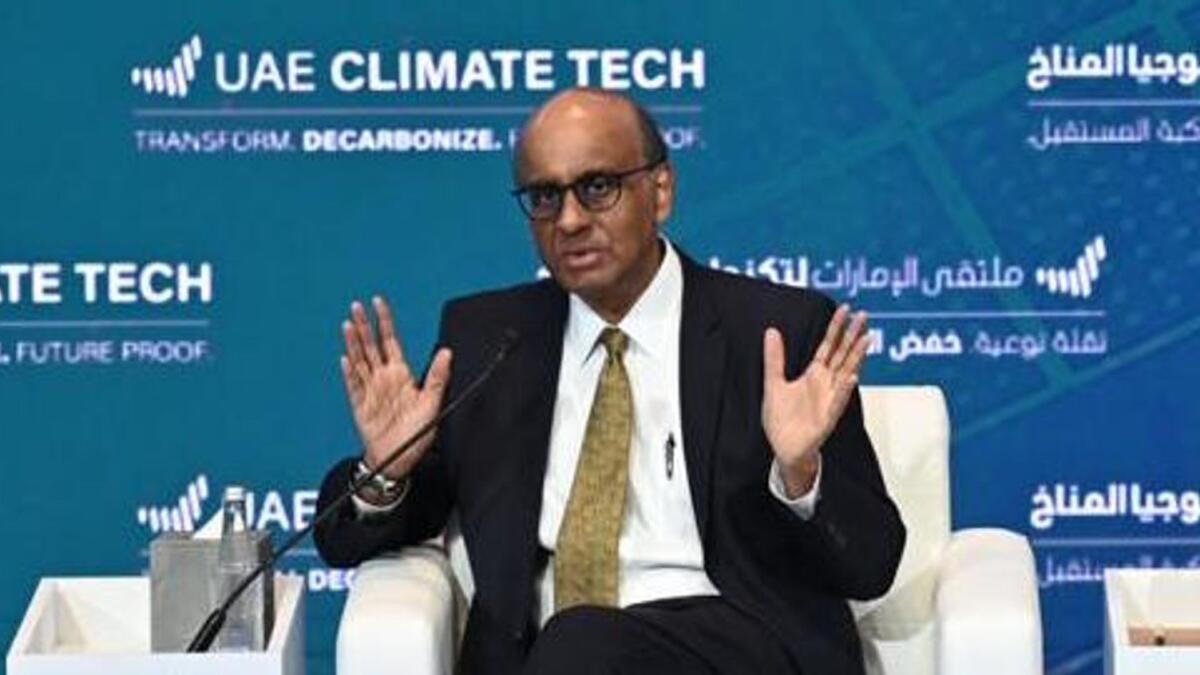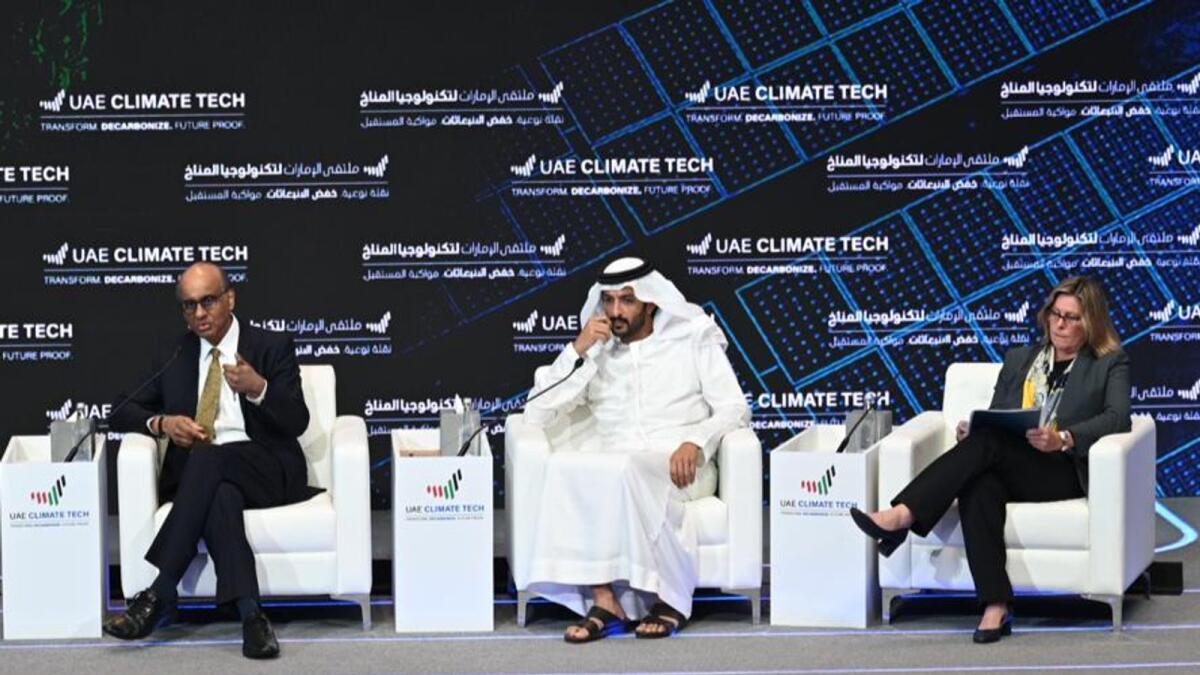
.
Tackling the challenges of climate change is an opportunity to have ‘global north and south’ work together on a common project, a minister from Singapore said during the UAE Climate Tech event in Abu Dhabi.
Most narratives by global experts and decision-makers alluded to the growing ‘Global North’ and ‘Global South’ climate divide – between the developed and rich countries versus low-income and climate-vulnerable countries. However, Tharman Shanmugaratnam, senior minister from Singapore, underlined that handling the climate challenge is a “huge global opportunity” for north-south cohesion and action.
The minister noted that tipping points like the melting of carbon-rich permafrost and Greenland, and rising sea levels and its impact on forests will have global ramifications. The consequences, however, are not yet widely discussed.
“The scale of the challenge, and the urgency of the challenge has not been seen before. I myself have been in economic policy for some period of time. But if you take the last 40 to 50 years, we haven’t faced this scale of opportunity in any previous episode of disruption,” Shanmugaratnam said during the first-of-its-kind climate tech forum.
Road to Net Zero
According to several estimates and experts, a road to Net Zero by 2050 will require anywhere between $4 trillion and $9 trillion in global investments annually.
The minister underlined that the trillion-dollar investments to address a three-headed ecological crisis — climate, water, biodiversity — will, in fact, lead to a significant increase in annual global growth.

“By the modest estimates, it’ll be something like a 20-25 per cent increase in global growth over the next 10 years. So, it’s not as if you’re having to make some large sacrifice, because of something called climate change, some 2050 target. It’s actually an opportunity with results, in terms of employment growth, skills growth, greater dynamism, and very importantly, I also see this as an opportunity in which what we loosely call the ‘Global South’ and the ‘Global North’, have a common project. And it’s an opportunity for the public and private sectors to have a common project on a scale that has never been seen before,” said Shanmugaratnam.
He also stressed on the need for greater public-private collaboration, private financing, upstream research and development, and scaling out technologies.
ALSO READ:
- UAE to host a COP of ‘how’ with ‘new’ focus: Emirati ministers during climate summit
- 'Let's end finger-pointing': UAE's COP28 chief spotlights realistic 'practical solutions' to cut carbon emissions
- Abu Dhabi joint fund seeks to attract 10 unicornss
Sustainable agriculture
Talking about reforms in the agricultural sector for sustainability, he recollected his family visit to India where he had a meal of only millets — grain crops aggressively promoted by Indian Prime Minister Narendra Modi’s government.
“Methane emitted by rice has an impact on greenhouse gas emissions equal to the entire aviation industry. So, change those species, and switch to other crops. So, for instance, in India, we now have a mantra about going back to traditional green … millet. They are very healthy, tasty, use far less water, and not emit methane,” said Shanmugaratnam, who is also the co-chair of Global Commission on the Economics of Water.
“So, these solutions exist, they don’t involve great sacrifice. It’s not a drop in the standard of living. In fact, my wife and I were in India recently, and because of this mantra all over the place, we went to have a meal that was entirely comprised of millet. And it was just so tasty,” the minister said.
In his call to action, Shanmugaratnam said all the countries need to raise more revenues domestically.
“It requires progressive tax and fiscal regimes. It requires a new political pact domestically. And every country should do more to develop its domestic capital markets to be able to mobilise domestic finance, pension funds. This has to be part of the future financial mix, not just global finance, not just concessional finance, but every country rowing in the same direction. And that 20-30-year project of raising greater national revenues has to be part of the picture,” he added.
